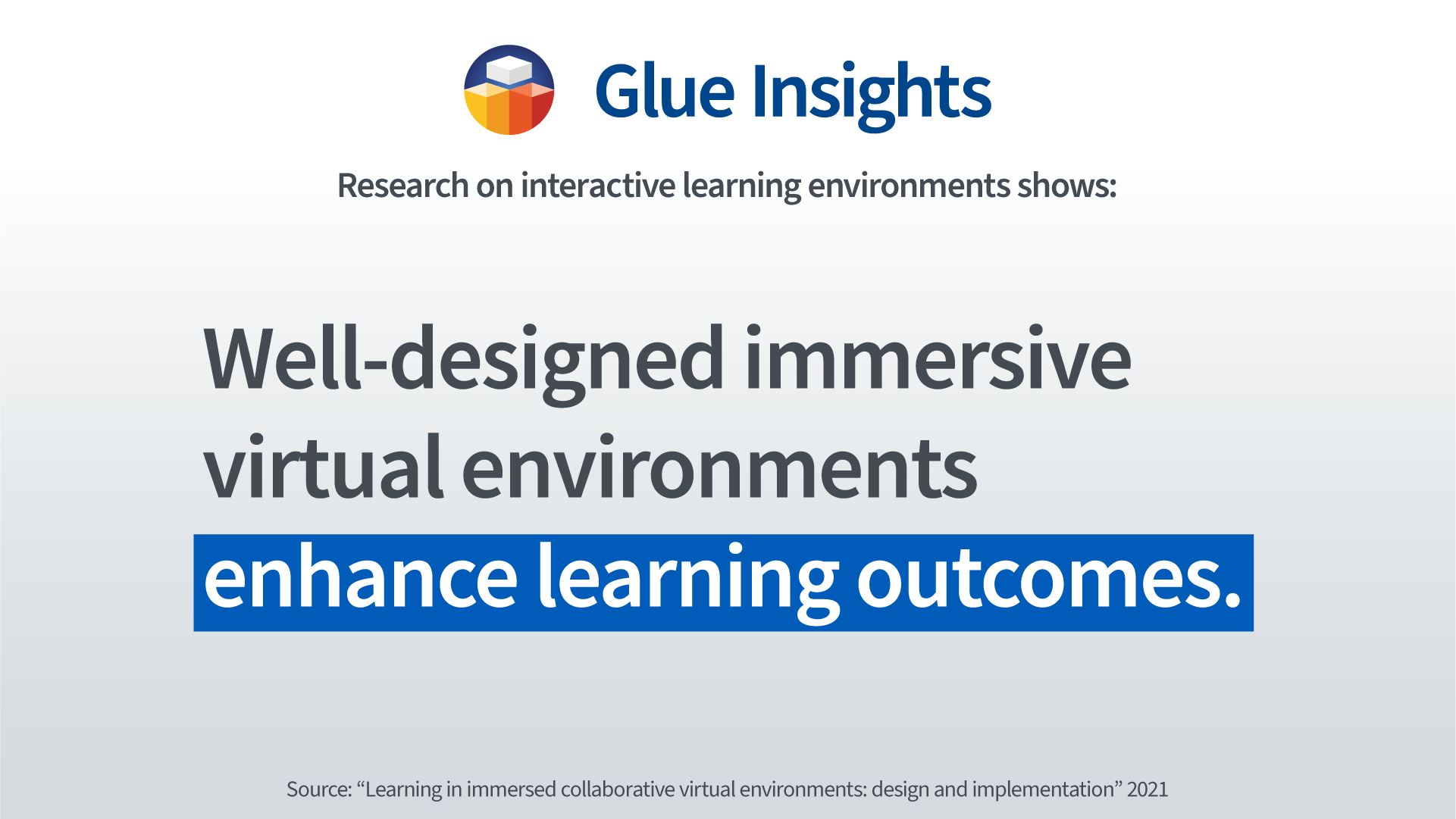Recent research has shown that well-designed immersive environments can significantly enhance learning outcomes. Here are several recommendations on how to make learning in VR more effective:
1. Optimize cognitive flow
The feeling of presence in VR can be unfamiliar and overwhelming for users. To tackle this, make sure to have a pre-training before the actual event, workshop or virtual meeting to help users become more familiar with the technology.
2. Foster collaborative learning
In virtual environments, it’s important to make sure that instructions and educational content are available for each user. Team tasks with interdependencies between participants help to engage each of them and encourage collaboration.
3. Leverage platform-specific affordances
The VR platform is your medium, and the quality of the virtual experience depends on how well you utilize the platform’s features, avatars, and spaces. Ensure that your team is aware of what they can do and make the most of the platform’s capabilities to eliminate frustration from the use of new, unfamiliar technology.
When designing your next virtual training, workshops or other learning-focused events for your team, keep these recommendations in mind as they can help you take full advantage of VR and its benefits.
Learn more about benefits of the immersive VR education in your workplace.
Source: “Learning in immersed collaborative virtual environments: design and implementation”


